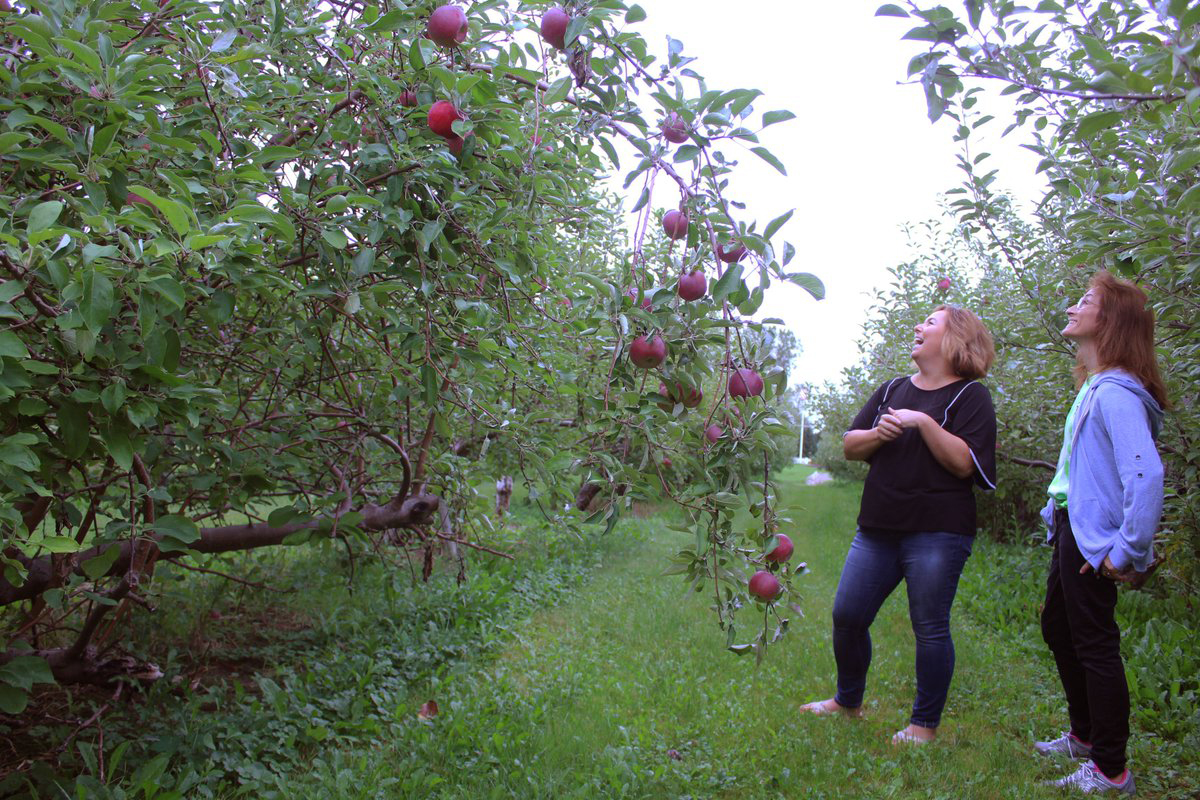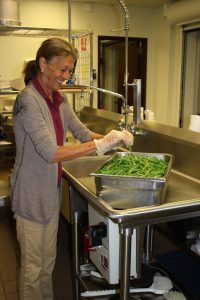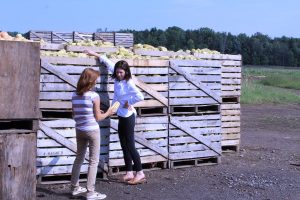B-B Schools embody ‘Farm To School’

October is National Farm to School Month. Since its Congressional dedication in 2010, schools are encouraged to collaborate with local farmers to bring fresh, local produce into school cafeterias throughout October. However, School Cafeteria Lunch Manager Mary Dellapenna does not wait for October. For the past five years, she has been out in the community working with farms to source fresh, local ingredients.
Fresh fruit is on the menu every day at Byron-Bergen schools and, if a student chooses an apple, it likely came from Roanoke Apple Farm. The family owned and operated farm is located twelve miles from the school. The proprietor Linda Williams delivers the handpicked fruit directly to the school.
“It’s all about the community,” said Williams. “Even though this is an agricultural community, a lot of the kids don’t know where their food comes from or how it gets there. I like knowing that we help them eat fresh and clean.”

Not just the apples have a quick commute to the school. Dellapenna also locally sources green beans, cucumbers, cabbage, onions, and squash from Torrey Farms in Elba. Torrey Farms has been family owned and operated for twelve generations with seasonal employees with forty years of experience with the company. While Torrey Farms generally sells to stores and wholesale distributors, they make an extra effort when it comes to schools.
“We are here for the schools who want to make it work,” said sales team member Shannon Kyle. “It can be a logistical challenge but we are willing to go above and beyond for Mary (Dellapenna).”
However, getting the food to the school is only the first challenge. Dellapenna and her team must choose recipes that the students will enjoy.
“The fresh produce goes over very well with the students who regularly choose it over processed food,” said Byron-Bergen Jr./Sr. High School Cook and Manager Rozanne Klycek. “The local apples and cucumber wheels are definite favorites.”
Much of the local produce requires preparation. Unlike canned green beans, fresh green beans are washed, snipped, and cooked in the school kitchens and Dellapenna must keep an eye on labor hours. But Klycek and her staff understand the importance of bringing the students fresh food.

“The health benefit of locally grown produce is that it is ‘fresh’, meaning there are no preservatives or additives like salt or sugar,” Klycek adds. “Also, the vitamins in fresh produce are at their optimal nutritional value as compared to canned fruits and vegetables.”
As the local growing season ends, Dellapenna will need to rely more on preserved and imported produce for the schools. However, come spring, she will be back out on the farms seeking out the best local produce for the Byron-Bergen students.
Provided information





